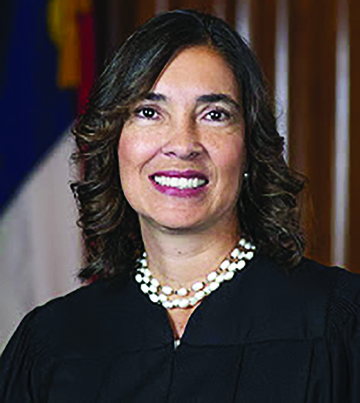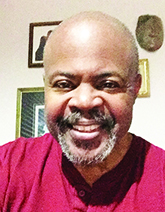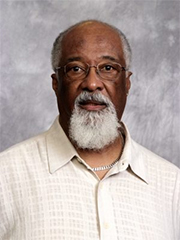
Joyner says Earls is warning of a serious situation on State Supreme Court

By Cash Michaels

Professor, attorney and legal analyst Irving Joyner of North Carolina Central University School of Law in Durham says now that Republicans have a definitive 5 - 2 majority on the state Supreme Court, the Black community should pay attention to the warnings Democrat Associate Justice Anita Earls issued last week during an MLK holiday speech where she told an audience that citizens should be concerned about the racial disparity in the state’s criminal justice system, and challenged them “to be willing to not be silent.”
Though Republicans won two Democratic seats on the High Court last November, thus taking over the court majority 5-2 January 1st, the justices for the new term don’t begin hearing arguments until January 31st.
“With the loss of two of those Democrats in 2022, the Republicans gained complete control of the Court and resulted in the emergence of the most right-wing Court since the 1960s,” Joyner says. “The newly elected members of this new Court have already demonstrated [their] resolve to follow a rigid right-wing judicial philosophy which gives almost complete deference to enactments of the [Republican-led] General Assembly and refuses to give broader and more progressive interpretations to the provisions of the North Carolina Constitution.”

"This petition is another example of legislative leadership stopping at nothing to infringe on the right of African Americans to vote freely in North Carolina," said Jeff Loperfido, interim chief counsel of Voting Rights at the Southern Coalition for Social Justice.
Justice Earls said there are 15-18 judicial clerks for the state Supreme Court at any given time. The clerks work closely with the justices, but presently, there are no African American clerks. These positions are a gateway to higher legal service.
Joyner says, “In latter elections, Republican candidates for the Supreme Court have been former judicial clerks of the right-wing justices on the Court and their electoral successes have been strongly promoted by the most right-wing legislators and supporters within the Republican Party. As a result, Republicans have gained control of the North Carolina Court of Appeals and its Supreme Court.”
“Generally, African Americans and attorneys of color have not represented clients in the appellate arena except in those criminal cases which are represented by appointed attorneys through the NC Indigent Defense Services or from civil rights organizations, “Prof. Joyner continued. “In the absence of an attorney of color appearing in these courts, the views and legal interests of racial minorities are not presented and considered by appellate judges. In addition, new African Americans and attorneys of color are not being hired as judicial clerks because there isn’t a demonstrated interest by the leadership of the Supreme Court in creating and maintaining racial diversity in this judicial pipeline.
Justice Earls did share last week how “…an internal diversity committee that she participated in last year was disbanded recently. When she asked why, Earls says she was told there was no need for it, and what purpose did it serve.”
"Then she said she was told it was more important to “hire the most qualified people” for the state judiciary.”
Earls did credit Gov. Cooper with finding qualified legal professionals of color to appoint at least a full 40% of all his appointments to the judiciary.
Joyner applauds the governor for seeking diversity on the bench.
“Across the state, there is a wide pool of African Americans and attorneys of color who are qualified to serve as judges, and they have been regularly appointed by Governor Cooper and subsequently elected by voters in local communities. That success has not been replicated in statewide elections since the elections of Associate Justices Anita Earls and Michael Morgan.”
Earls said that the governor’s success shows that the potential is out there, and that more can be done to make North Carolina’s criminal justice system representative.
Prof. Joyner says while true, the current composition of the state’s Supreme and Appellate courts does not bode well for African Americans.
“Given its present composition and political inclinations, the North Carolina Court system is in danger of following the extreme right-wing drift that we envision to now guide the political based-judicial opinions which we expect from the United States Supreme Court,” Joyner said.
“This drift will continue unless and until African Americans, people of color and our political leaders develop concentrated campaigns to elect more racially and politically diverse people to our appellate courts. As it stands now, we can expect very conservative decisions from North Carolina’s appellate courts in areas of law which most significantly impact the constitutional and political interests of African Americans, people of color and members of other minority and disadvantaged communities.”
Prof. Joyner continued, “Our courts should be independent and willing to protect the people from the political excesses of the right-wing legislative delegations which seek to exercise absolute control over the lives of North Carolina citizens.”



